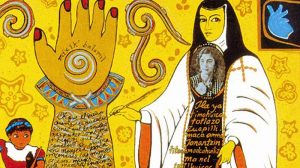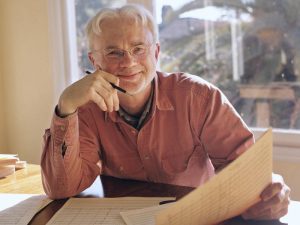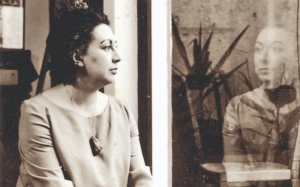By Donato Cabrera│medium.com/@donatocabrera
December 22, 2020

Twenty years ago, John Adams’ nativity oratorio, El Niño, premiered at the Théâtre du Châtelet in Paris with soloists Dawn Upshaw, Lorraine Hunt Lieberson and Willard White, a vocal ensemble from the Theatre of Voices — countertenors Daniel Bubeck, Brian Cummings and Steven Rickards), the London Voices, La Maîtrise de Paris, and the Deutsches Symphonie-Orchester Berlin, all conducted by Kent Nagano. Peter Sellars’ incredible libretto includes text from the King James Bible, the Wakefield Mystery Plays, Martin Luther’s Christmas Sermon, the Gospel of Luke, and several gnostic gospels from the Apocrypha, as well as poems by Rosario Castellanos, Sor Juana Inés de la Cruz, Gabriela Mistral, Vicente Huidobro, Rubén Darío, librettist Peter Sellars, and Adams himself. He also quotes Gabriela Mistral’s “The Christmas Star” and incorporates a choral setting of “O quam preciosa” by Hildegard von Bingen.
El Niño follows the typical storyline of Jesus’ birth, however Part I focuses on Mary’s perspective while in the stable in Bethlehem, and while Handel’s Messiah is certainly a model for Part I, using women’s voices was of paramount importance to Adams and Sellars
The idea of incorporating Hispanic texts into the libretto came from Peter Sellars, who I’d asked to help me construct a libretto. We both call California home, and the intensity and genuineness of Latin American art and culture is one of the great gifts one receives by living here. Of the five Hispanic poets whose texts I’ve set, three are women. This opened up possibilities of adding another dimension to the story-telling. So much of the ‘official’ Nativity narrative has traditionally been told by the Church, and presumably by men. But seldom in the orthodox stories is there any more than a passing awareness of the misery and pain of labour, of the uncertainty and doubt of pregnancy, or of that mixture of supreme happiness and inexplicable emptiness that follows the moment of birth. All of those extreme emotional dramas surrounding the birth of a child are touched upon by these Hispanic women.

The four poems of the celebrated Mexican novelist and poet, Rosario Castellanos, play a crucial role. Again, Adams elaborates,
“The principal voice of this piece — we could say the heart of the piece — is that of Rosario Castellanos. I am embarrassed to confess that before beginning work on this piece I had never heard the name of Rosario Castellanos. And I suspect that 95% of North Americans likewise do not know her name. But that situation doubtless will change during the coming years as the astonishing gift of these Mexican poets comes to be recognized.”

El Niño ends quietly, for only children’s choir and guitar, with the last word, “poem,” lovingly ending this two-hour piece.
And the original recording made with this cast is excellent.
